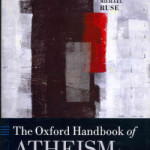The 6 Varieties of Atheism (and Which Are Most Defensible)
by Dr. Edward Feser
Filed under Atheism, New Atheists
A religion typically has both practical and theoretical aspects. The former concern its moral teachings and rituals, the latter its metaphysical commitments and the way in which its practical teachings are systematically articulated.
An atheist will naturally reject not only the theoretical aspects, but also the practical ones, at least to the extent that they presuppose the theoretical aspects. But different atheists will take different attitudes to each of the two aspects, ranging from respectful or even regretful disagreement to extreme hostility. And distinguishing these various possible attitudes can help us to understand how the New Atheism differs from earlier varieties.
Consider first the different attitudes an atheist might take to the theoretical side of a religion. There are at least three such attitudes, which, going from the most hostile to the least hostile, could be summarized as follows:
1. Religious belief has no serious intellectual content at all. It is and always has been little more than superstition, the arguments offered in its defense have always been feeble rationalizations, and its claims are easily refuted.
2. Religious belief does have serious intellectual content, has been developed in interesting and sophisticated ways by philosophers and theologians, and was defensible given the scientific and philosophical knowledge available to previous generations. But advances in science and philosophy have now more or less decisively refuted it. Though we can respect the intelligence of an Aquinas or a Maimonides, we can no longer take their views seriously as live options.
3. Religious belief is still intellectually defensible today, but not as defensible as atheism. An intelligent and well-informed person could be persuaded by the arguments presented by the most sophisticated contemporary proponents of a religion, but the arguments of atheists are at the end of the day more plausible.
Obviously one could take one of these attitudes towards some religions, and another of them towards other religions. For example, a given atheist might take a type 1 atheist position with respect to Christianity and a type 2 atheist position with respect to Buddhism (or whatever). Or he might take a type 1 attitude towards some versions of Christianity but a type 2 or type 3 attitude towards other versions of Christianity.
Now, among well-known atheists, it seems to me that Quentin Smith is plausibly to be regarded as taking a type 3 attitude toward Christianity, at least as Christianity is represented by prominent philosophers of religion like William Lane Craig or Alvin Plantinga. Keith Parsons, by contrast, seems to take at best a type 2 attitude towards Christianity and maybe even a type 1 attitude. And Jerry Coyne seems almost certainly to take a type 1 attitude, though perhaps on a good day and with respect to at least some varieties of religious belief he’d move up to type 2. (I’m happy to be corrected by Smith, Parsons, or Coyne if I’ve got any of them pegged wrong.)
Now let’s consider three different attitudes an atheist could take toward the practical side of a religion, going again from the most hostile to the least hostile:
A. Religious practice is mostly or entirely contemptible and something we would all be well rid of. The ritual side of religion is just crude and pointless superstition. Religious morality, where it differs from secular morality, is sheer bigotry. Even where certain moral principles associated with a particular religion have value, their association with the religion is merely an accident of history. Moreover, such principles tend to be distorted by the religious context. They certainly do not in any way depend on religion for their justification.
B. Religious practice has a certain admirable gravitas and it is possible that its ritual and moral aspects fulfill a real human need for some people. We can treat it respectfully, the way an anthropologist might treat the practices of a culture he is studying. But it does not fulfill any universal human need, and the most intelligent, well educated, and morally sophisticated human beings certainly have no need for it.
C. Religious practice fulfills a truly universal or nearly universal human need, but unfortunately it has no rational foundation and its metaphysical presuppositions are probably false. This is a tragedy, for the loss of religious belief will make human life shallower and in other ways leave a gaping void in our lives which cannot plausibly be filled by anything else. It may even have grave social consequences. But it is something we must find a way to live with, for atheism is intellectually unavoidable.
Here, too, a given atheist might of course take attitude A towards some religions or some forms of a particular religion, while taking attitude B or C towards others. Once again, Jerry Coyne seems to be an example of an atheist whose attitude toward religion lays more or less at the most negative end (A). Perhaps Stephen Jay Gould took something like attitude B. Atheists of a politically or morally conservative bent typically take either attitude B or attitude C (though I know at least one prominent conservative who is probably closer to attitude A). Walter Kaufmann is another good example of an atheist (or at least an agnostic) who took something like attitude B towards at least some forms of religion. Indeed, he seemed to regard religion as something that speaks to deep human needs and whose moral aspects are of great and abiding philosophical interest.
Now these two sets of possible attitudes can obviously be mixed in a number of ways. That is to say, a given atheist might take a more negative attitude towards the theoretical side of a given religion and a more positive attitude towards its practical side, or vice versa. And he might take different mixtures of attitudes towards different religions or forms of religion. For instance, he might take attitudes 2 and C towards some kinds of religious belief, and 1 and A towards other kinds. Thus we could classify atheists according to their combinations of attitudes towards the practical and theoretical sides of religion or of a particular religion—A1, B3, C2, and so forth.
An A1 atheist, then, would be the most negative sort, especially if he took an A1 attitude towards most or all forms of religion. A C3 atheist would be the most positive. At different times during my own years as an atheist, I would say that I tended to take either a B or C attitude towards the practical side of religion, and perhaps attitude 2 towards the theoretical side (at least until the latter part of my atheist years, when I started to move to 3 before finally giving up atheism). No doubt I had moments when I probably came across as more of an attitude 1 and/or attitude A type atheist with respect to at least some forms of religious belief—it’s easier to remember specific arguments with people than what one’s general attitude was during a given year, say—but overall I’d say that I probably hovered around B2 territory for at least much of my time as an atheist. (Walter Kaufmann was one of my heroes in those days. Indeed, Kaufmann’s attitude towards Christianity—which was more negative than his attitude towards other religions—influenced my own, and no doubt helped delay my eventual return to the Church.)
I find that atheists who fall on the most negative ends of these scales—A1 territory—are invariably the ones who are the least well-informed about what the religions they criticize actually believe, and the least rational when one tries to discuss the subject with them. And when you think about it, even before one gets into the specifics it is pretty clear that A1 is prima facie simply not a very reasonable attitude to take about at least the great world religions. To think that it is reasonable, you have to think it plausible that the greatest minds of entire civilizations—Augustine, Aquinas, Maimonides, Avicenna, Averroes, Lao Tzu, Confucius, Mencius, Buddha, Adi Shankara, Ramanuja, et al.—had for millennia been defending theoretical and practical positions that were not merely mistaken but were in fact nothing more than sheer bigotry and superstition, more or less rationally groundless and morally out of sync with the deepest human needs. And that simply isn’t plausible. Indeed, it’s pretty obviously ridiculous. Even if all religious belief turned out to be wrong, it simply is not at all likely that its key aspects—and especially those aspects that recur in most or all religions—could have survived for so long across so many cultures and attracted the respect of so many intelligent minds unless they had some significant appeal both to our intellectual and moral natures.
Hence a reasonable atheist should acknowledge that it is likely that attitudes 2 or 3 and B or C are the more defensible attitudes to take towards at least the ideas of the greatest religious thinkers and the most highly developed systems of religious thought and practice.
When one considers the prima facie implausibility of the A1 attitude together with the ill-informed smugness and irrationality of many of those who approximate it, it is pretty clear that its roots are not intellectual but emotional—that it affords those beholden to it a sense of superiority over others, an enemy on which to direct their hatreds and resentments, a way to rationalize their rejection of certain moral restraints they dislike, and so forth. In other words, A1 atheism is often exactly the sort of ill-informed bigotry and wish-fulfillment A1 atheists like to attribute to religious believers.
And here’s the thing: If there is anything new about the New Atheism, it is the greater prominence of atheists who at least approximate the A1 stripe. In Walter Kaufmann’s day, A1 atheism was represented by marginal, vulgar cranks like Madalyn Murray O’Hair. Now, people with similar attitudes like Dawkins, Harris, Hitchens, Myers, and Coyne are by no means marginal, but widely regarded as serious thinkers about religion. This is the reverse of intellectual progress. And we know what Walter Kaufmann would have thought of it.
Related Posts
Note: Our goal is to cultivate serious and respectful dialogue. While it's OK to disagree—even encouraged!—any snarky, offensive, or off-topic comments will be deleted. Before commenting please read the Commenting Rules and Tips. If you're having trouble commenting, read the Commenting Instructions.













